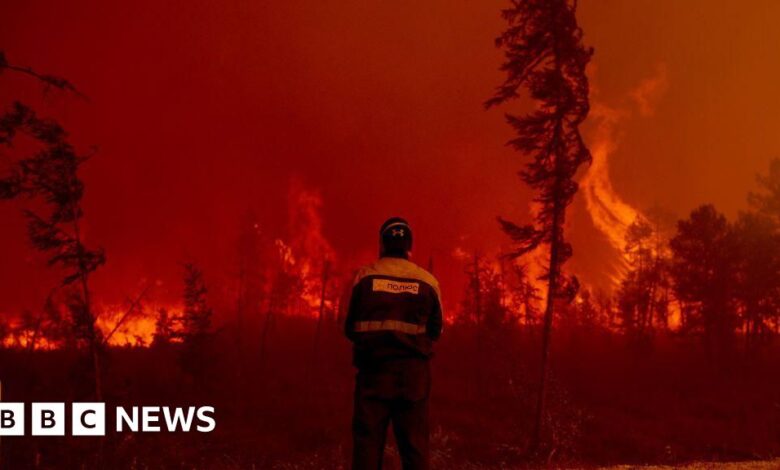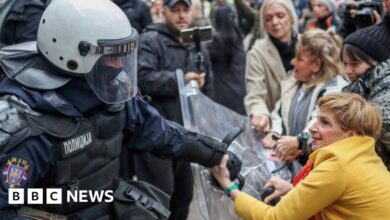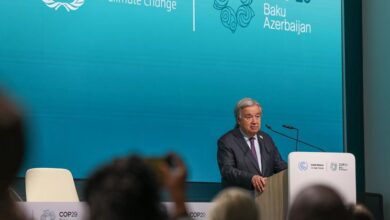Arctic wildfires are devastating the region, EU climate service says

Wildfires are once again ravaging the Arctic Circle, according to a report by Copernicus, the EU’s climate change watchdog.
This is the third time in the past five years that high-intensity fires have occurred in this area.
In a statement released Thursday, Copernicus reported higher air temperatures and drier conditions in Sakha, Russia, which are creating ideal conditions for wildfires once a spark is sparked.
Quoting Russian state news agency Tass, Deputy Minister of Regional Ecology, Management and Forestry said more than 160 forest fires had affected nearly 460,000 hectares of land as of June 24.
Scientists fear that smoke from the blaze will hinder the Arctic ice’s ability to reflect solar radiation – which would mean both land and sea absorb more heat.
Professor Gail Whiteman from the University of Exeter told the BBC the Arctic region is “ground zero for climate change”.
“The growing wildfires in Siberia are a clear warning sign that this vital system is approaching a dangerous climate tipping point,” she said.
“What happens in the Arctic will not stop there,” she added, saying the fires are “a warning to take urgent action.”
Professor Guillermo Rein, Professor of Fire Science, Imperial College London, calls the fires “the growing monster of climate change”.
“A decade ago, Arctic wildfires were considered rare, rarely studied phenomena. Now they are occurring every summer, with a growing burn scar,” he told the BBC.
As climate change raises temperatures in the Arctic, wildfires have shifted north, burning boreal forests and tundra, releasing large amounts of greenhouse gases from carbon-rich organic soils.
According to estimates from Copernicus findings, carbon emissions from wildfires during June were the third highest in the past two decades at 6.8 million tonnes of carbon – behind only wildfires in 2020 and 2019.
Carbon emissions for those years were 16.3 and 13.8 megatonnes, respectively.
Mark Parrington, senior scientist at CAMS, said the conditions leading to this latest round of wildfires were similar to fires in 2019 and 2020.
In 2021, wildfires also swept across Sakha but were less intense than the fires in 2020 and 2019.
Arctic sea ice alone has decreased rapidly since the 1980s.




